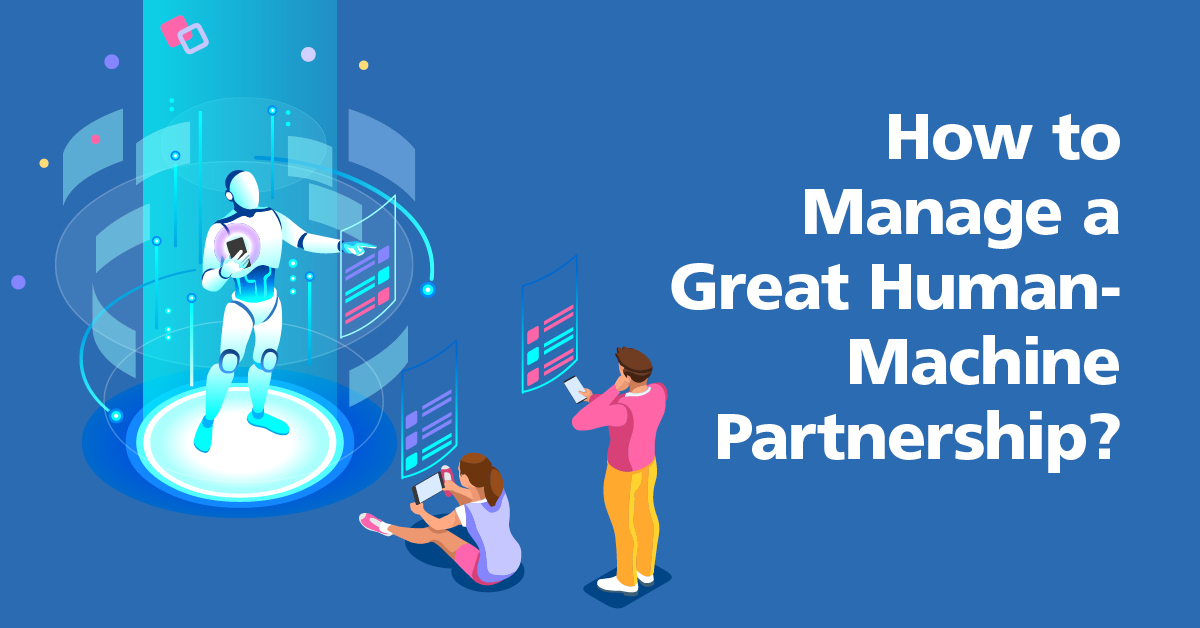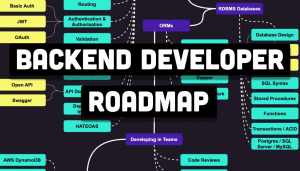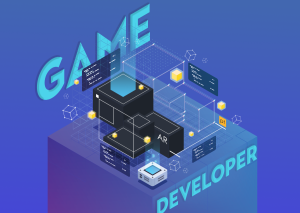Discover how Intelligent Content Management transforms digital experiences. Learn how AI, automation, and data-driven workflows enable personalized, secure, and self-optimizing content ecosystems.

Intelligent Content Management: Engineering the Future of Digital Experience
Intelligent Content Management has evolved beyond traditional CMS systems. In 2025, modern platforms no longer just store content — they understand it, adapt to user behavior, and optimize experiences in real time using AI, analytics, and automation.
-
Introduction: From Static Publishing to Intelligent Orchestration
-
The Shift from CMS to DXP: A New Era of Experience Engineering
-
AI: The Core Intelligence of Modern Content Ecosystems
-
The Rise of the Headless and API-First Architecture
-
Automation and Workflow Intelligence: The Invisible Workforce
-
Data as the DNA of Digital Experience
-
Security, Compliance, and Ethical Intelligence
-
The Human–Machine Partnership: Augmenting Creativity
-
The Future Roadmap: Self-Optimizing Content Ecosystems
-
Conclusion: Engineering for Intelligence, Designing for Humanity
For decades, content management was about control — a system designed to organize, publish, and archive information across the web. Traditional CMS platforms like WordPress, Drupal, and Joomla revolutionized how brands went online. But in 2025 and beyond, content management is evolving into something far more sophisticated — a dynamic, AI-driven ecosystem that learns, adapts, and optimizes every experience in real time.
This transformation is no longer just about publishing. It’s about engineering intelligence into the digital experience layer itself — where automation, analytics, and artificial intelligence converge to form the new foundation of brand engagement.
Welcome to the era of Intelligent Content Management, where platforms no longer just store content — they understand it.
1. The Shift from CMS to DXP: A New Era of Experience Engineering
The rise of Digital Experience Platforms (DXPs) marks a significant paradigm shift. Unlike traditional CMS tools that focus on static content delivery, DXPs integrate AI, personalization engines, omnichannel publishing, and analytics into one intelligent framework.
In this new ecosystem:
- Content is data-rich — structured, tagged, and semantically aware.
- Delivery is personalized — powered by machine learning and behavioral insights.
- Experience is continuous — evolving dynamically across every device and platform.
This shift reflects a deeper truth: modern users expect contextual, seamless experiences, not generic information. An intelligent content system acts as both architect and analyst — building the structure while simultaneously learning from every interaction.
In short, content management has evolved from a back-end operation to a strategic engine for customer experience.
2. AI: The Core Intelligence of Modern Content Ecosystems
At the heart of the intelligent CMS lies artificial intelligence — the silent operator transforming how organizations produce, deliver, and optimize content.
a. AI-Assisted Creation and Editing
Natural Language Processing (NLP) tools now enable CMS platforms to analyze tone, sentiment, and readability, suggesting revisions that align content with brand voice and SEO goals.
AI co-authors are becoming creative partners — not just correcting grammar but ensuring message precision and emotional resonance.
b. Predictive Personalization
Machine learning algorithms evaluate user behavior in real time — clicks, scroll depth, dwell time — to deliver hyper-personalized experiences. A returning visitor might see different headlines, calls to action, or even page layouts based on predictive engagement patterns.
c. Automated Tagging and Metadata Management
AI engines automatically categorize and tag assets for SEO and accessibility compliance. What once required human effort — metadata entry, taxonomy design, keyword clustering — is now performed in milliseconds by intelligent automation.
d. Insight-Driven Content Optimization
By interpreting real-time analytics, AI identifies which content performs best for specific audience segments. It then recommends structural, visual, or linguistic adjustments that continuously refine digital experiences without manual intervention.
In essence, AI transforms CMS from a storage system into an active decision-making engine.
3. The Rise of the Headless and API-First Architecture
A key technological enabler behind intelligent content management is the headless CMS architecture — a decoupled system that separates the content repository (the “body”) from its presentation layer (the “head”).
Why Headless Matters:
- Flexibility: Developers can deliver content to websites, apps, wearables, or even voice assistants using the same API.
- Speed: Front-end teams can use modern frameworks like React, Next.js, or Svelte without backend constraints.
- Scalability: A single API-driven hub supports omnichannel distribution, drastically improving performance and consistency.
When combined with AI-driven orchestration, a headless CMS evolves into an intelligent experience fabric — distributing personalized, dynamic content across every digital touchpoint seamlessly.
This architectural transformation is what gives rise to next-generation DXPs — platforms engineered not just for publishing, but for predictive experience delivery.
4. Automation and Workflow Intelligence: The Invisible Workforce

In intelligent content management, automation is the silent enabler of efficiency. Every step of the content lifecycle — creation, review, publishing, and archiving — can be optimized through intelligent workflow automation.
a. Intelligent Workflows
CMS platforms now integrate with project management and collaboration tools like Jira, Asana, or Slack to synchronize editorial cycles. AI can predict bottlenecks, assign resources, and even schedule posts when audience engagement peaks.
b. Smart Version Control
Machine learning tracks and compares revisions, identifying which edits historically improve engagement or conversions. The CMS learns over time which tone, structure, or visuals yield the best outcomes.
c. Automated Publishing Pipelines
Integrated DevOps-like automation ensures that once approved, content is automatically deployed across multiple environments — staging, production, or mobile — with rollback safety mechanisms.
This layer of intelligent orchestration reduces human overhead, shortens time-to-market, and maintains a consistent brand experience across every channel.
5. Data as the DNA of Digital Experience
In 2025, content and data are inseparable. Intelligent content management thrives on structured, measurable, and actionable data.
a. Semantic Structuring
Content is now being built using semantic data models — connecting words, intent, and audience behavior to contextual meaning. This allows AI engines to understand why content matters, not just what it says.
b. Analytics Integration
DXPs integrate directly with data visualization and BI tools. Instead of static dashboards, teams gain adaptive analytics that interpret engagement patterns, predict churn, and identify emerging audience needs.
c. Data-Driven Storytelling
Intelligent CMS platforms don’t just deliver stories — they design them based on real-world behavior. This data feedback loop ensures every piece of content becomes a learning mechanism for future campaigns.
In this sense, data becomes both the input and the outcome of digital storytelling — fueling a cycle of continuous improvement and innovation.
6. Security, Compliance, and Ethical Intelligence
As automation and AI take the reins of content delivery, trust and compliance become the new cornerstones of digital experience management.
a. Privacy-First Design
Modern DXPs must comply with regulations like GDPR, CCPA, and upcoming AI governance laws. Intelligent CMS platforms now embed data anonymization, consent tracking, and compliance auditing directly into their architecture.
b. Ethical Content Automation
AI-driven systems must be transparent and bias-free. Ethical governance frameworks ensure that automated decisions — from personalization to recommendations — align with inclusivity, fairness, and brand ethics.
c. Cybersecurity Integration
Cloud-native CMS platforms integrate continuous monitoring, vulnerability scanning, and automated patching. AI enhances threat detection, identifying anomalous content behavior or unauthorized data access in real time.
In the age of automation, security and ethics define credibility. An intelligent system is not just powerful — it’s accountable.
7. The Human–Machine Partnership: Augmenting Creativity

The future of intelligent content management is not about replacing humans, but amplifying their creative potential.
a. AI as the Creative Partner
By automating repetitive editorial tasks — tagging, SEO optimization, localization — AI allows creators to focus on storytelling, strategy, and innovation.
The result is a collaborative model where humans provide vision and emotion, while machines provide precision and scale.
b. Cross-Functional Collaboration
Developers, designers, and content strategists now operate within shared ecosystems, using real-time feedback loops and predictive analytics to co-create adaptive experiences.
c. Continuous Learning Systems
Intelligent CMS solutions evolve through feedback — every user interaction trains the system, every iteration refines performance. This creates a virtuous cycle of learning that fuels both human creativity and algorithmic intelligence.
In this era, creativity is data-driven, and data is creative.
8. The Future Roadmap: Self-Optimizing Content Ecosystems
By 2030, the concept of an “intelligent CMS” will evolve further into autonomous content ecosystems — self-regulating, self-optimizing platforms that continuously enhance user experience without human intervention.
Future innovations may include:
- Self-healing content architectures that fix broken links, deprecated APIs, or accessibility issues automatically.
- Emotionally adaptive interfaces that change visuals, tone, and structure based on the user’s mood or intent.
- Integrated knowledge graphs that connect enterprise content to AI assistants and conversational interfaces.
- Real-time generative publishing, where AI dynamically assembles personalized microsites based on user profiles.
In this future, the boundaries between content creation, management, and experience will blur entirely — giving rise to intelligent ecosystems that think, learn, and evolve as living entities.
Conclusion: Engineering for Intelligence, Designing for Humanity
The evolution of content management is not merely technological — it’s philosophical.
It reflects a deeper shift from managing information to orchestrating intelligence.
An intelligent CMS is more than a tool; it’s a reflection of how organizations think, create, and connect. By embracing AI-driven workflows, data intelligence, and ethical automation, businesses aren’t just optimizing digital experiences — they’re engineering the next era of human–machine collaboration.
In this age of intelligent content, success belongs to those who can harmonize automation with authenticity, data with creativity, and intelligence with empathy.
The future of digital experience isn’t managed — it’s engineered.


